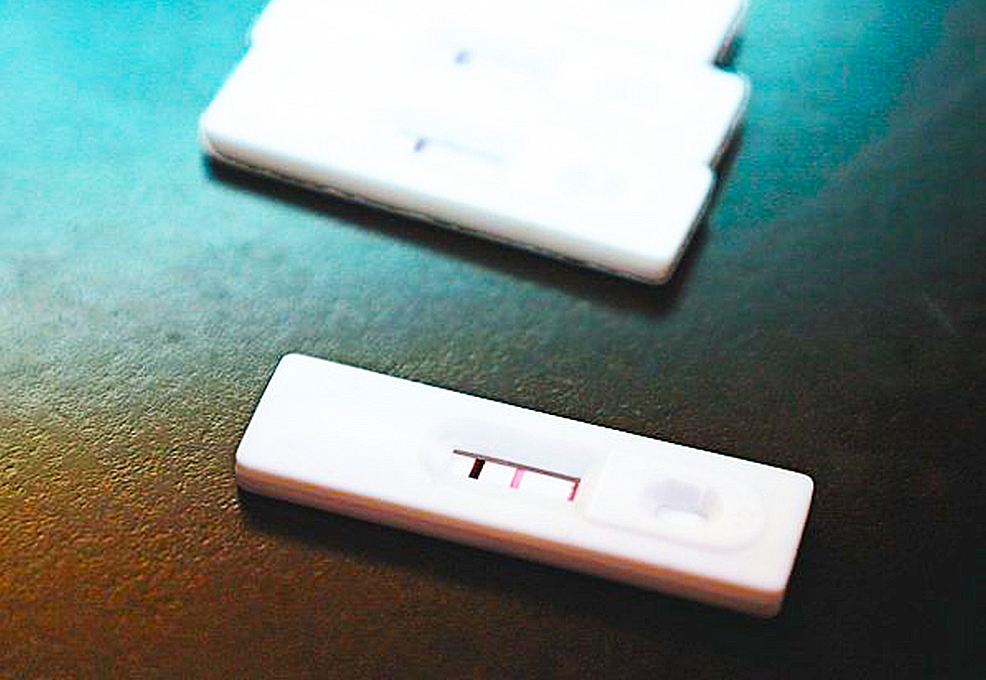Radiogenomics to See the Unseen in Brain Cancer
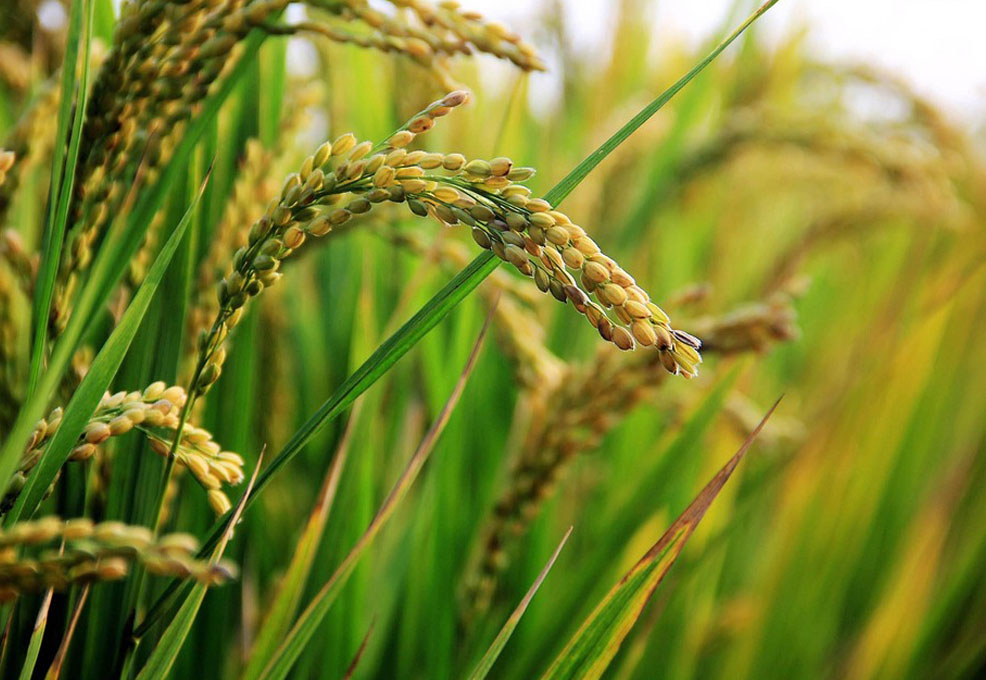
Author(s)
Su-May YuBiography
Prof. Su-May Yu is an Academician and Distinguished Research Fellow of the Institute of Molecular Biology (IMB), Academia Sinica. She is also a Distinguished Chair Prof. leading a rice functional genomics research program in National Chung Hsing University. She has been recognized with many international and national awards, including being elected Fellow of the American Association for the Advancement of Science (AAAS) and the Corresponding Membership Award of the American Society of Plant Biologists (ASPB).
Academy/University/Organization
Institute of Molecular Biology (IMB), Academia SinicaEdited by
Shuen-Fang Lo, Su-May Yu and Tuan-Hua David Ho-
TAGS
-
Share this article
You are free to share this article under the Attribution 4.0 International license
- LIFE SCIENCES
- Text & Image; Video
- March 25,2019
To cope with global climate change that is causing great loss of crop productivity, and to meet the high demands of a rapidly expanding population for food supply in the next few decades, integration of advanced biotechnologies into conventional breeding programs to accelerate the process of crop improvement has become an urgent task. Improved rice varieties with higher yield, increased nutrition, and a reduced environmental footprint are projected to be achieved by using less land, less water and being resilient under more severe environmental stresses, as well as effective genetic approaches. The marker assisted backcross breeding (MABB) method that is precise, rapid, and efficient, has become a popular molecular breeding technology for crop improvement. Our previous studies have discovered that ectopic expression of a mutated enzyme GA2ox6 that inactivates plant hormone GA led to reduced plant height, increased productive tillers, an expanded root system, higher water use efficiency, enhanced photosynthesis rate, and elevated abiotic and biotic stress tolerance in transgenic rice. Recently, we have successfully integrated the GA2ox6 locus from a stress tolerant wild rice accession N22 into the popular Taiwanese aromatic rice variety TNG71 (Yi Quan aromatic rice) following the MABB approach. The newly bred rice variety has a stronger root system, enhanced drought tolerance, and increased grain yield (by 30%) compared with the parent TNG71 under both normal and water deficit conditions in the field. The success of our breeding efforts suggests that the integration of advanced molecular breeding technologies into conventional breeding programs offers an effective approach to improving rice varieties with desirable agronomic traits.
Breeding new rice varieties with favorable palatability, high yield, and enhanced resistance to environmental stress and diseases is currently a major task for crop improvement. To achieve this goal, our team has followed the marker assisted backcross breeding (MABB) approach in the rice breeding program. The MABB approach offers rapid and precise selection for desirable agronomic traits and effective integration of beneficial target genes from donor variety to recipient variety, which is considered as a highly efficient approach to the molecular breeding of crops.
TNG71 (Yi Quan rice), a popular aromatic rice cultivar, was the first elite rice variety to be assigned a trade name in Taiwan. Its annual planting area exceeds 1,000 hectares in Taiwan, with a market value estimated at NT$4.4 billion. However, intolerance to biotic stress (such as diseases) and abiotic stress (such as drought) has limited the further expansion for growing TNG71.
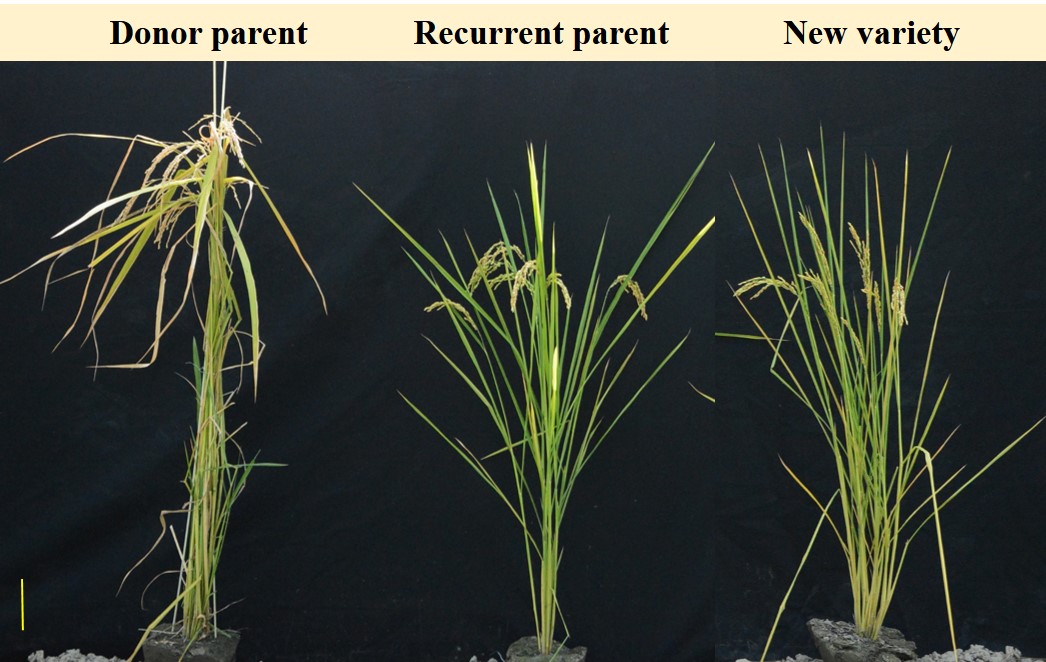
The newly bred rice variety has similar morphology to the parent variety TNG71, except for more tillers and higher grain yield.
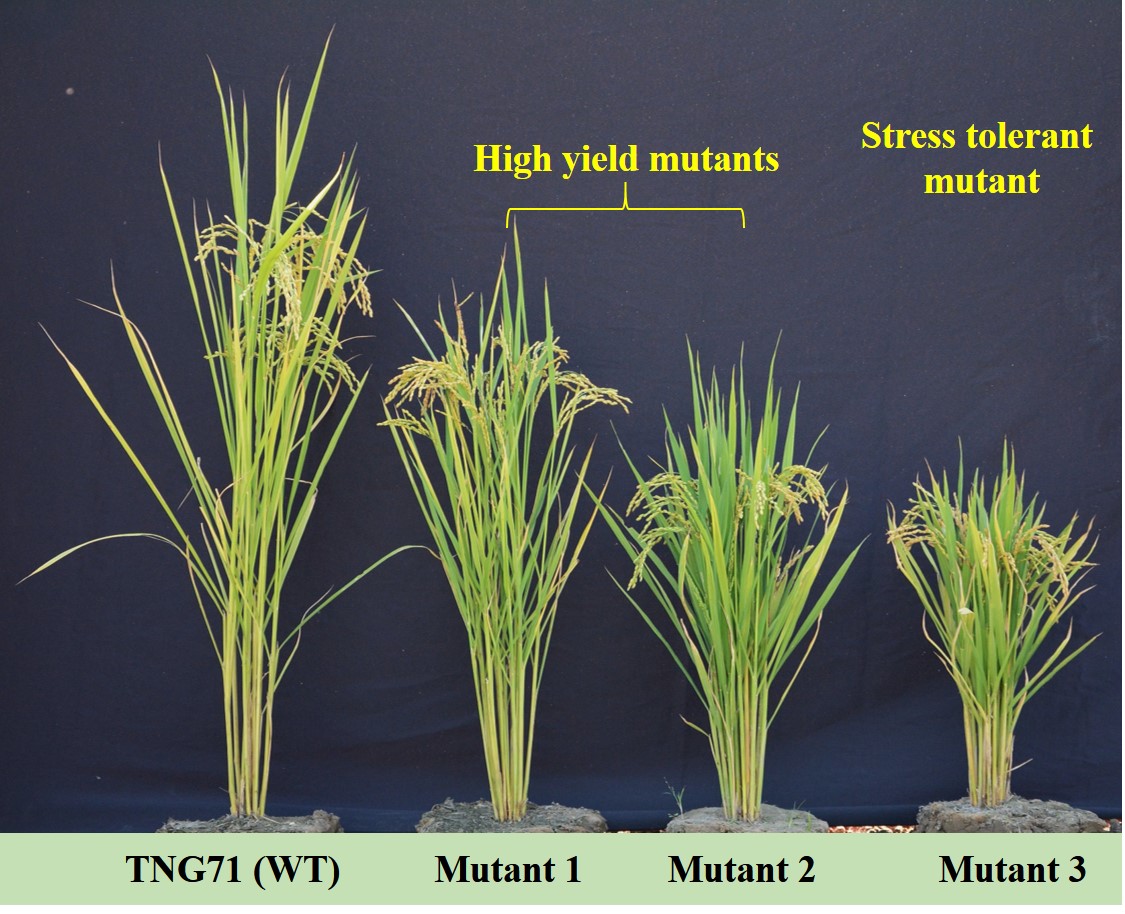
Ectopic expression of mutated GA2ox6 moderately lowered GA levels, leading to reduced plant height, more productive tillers, higher grain yield, and elevated abiotic and biotic stress tolerance in rice. (*WT: wild type)
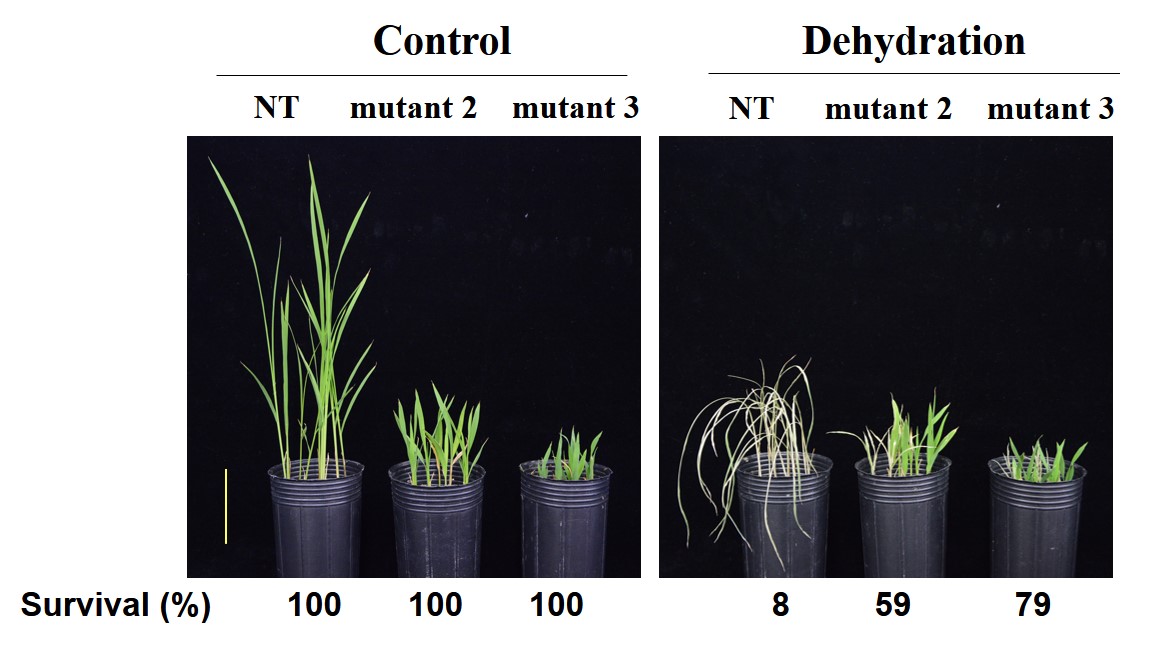
Drought stress tolerance is enhanced in GA deficient transgenic rice. Six 4-day-old seedlings were transferred to soil in the same pot and cultivated with 1/3 Kimura solution for 20 days. Plants were then dehydrated for 11 days and re-watered for 3 days. Survival rates (%) were determined after re-watering. (*NT: non-transformed plants)
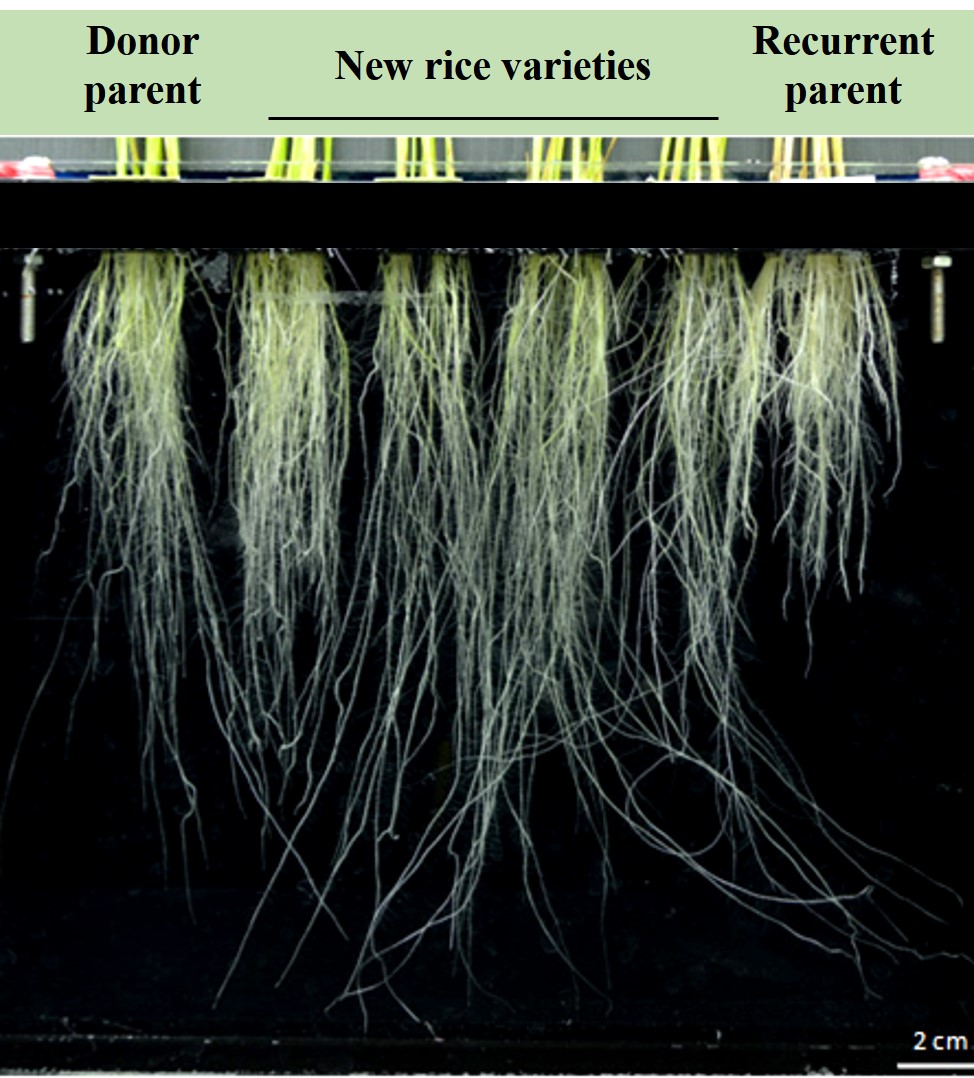
Newly bred rice varieties have stronger root systems
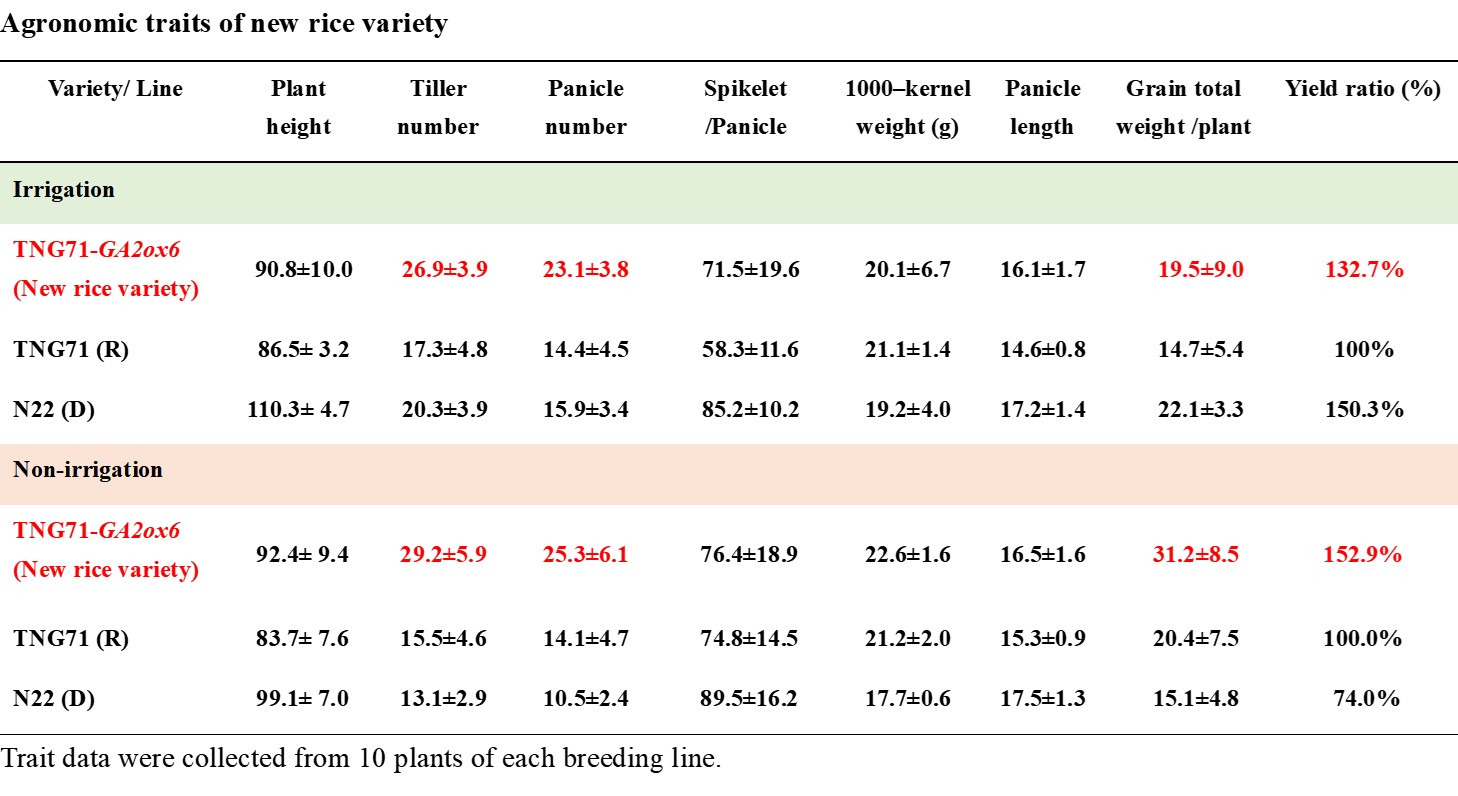
The agro-morphological traits and yield related components of the new rice variety were compared with both parents in the field trial with or without irrigation in the 2nd cropping season of 2016.
Our research has demonstrated that the integration of advanced molecular breeding technologies to the conventional breeding offers an effective approach to improving rice varieties in Taiwan.
STAY CONNECTED. SUBSCRIBE TO OUR NEWSLETTER.
Add your information below to receive daily updates.



